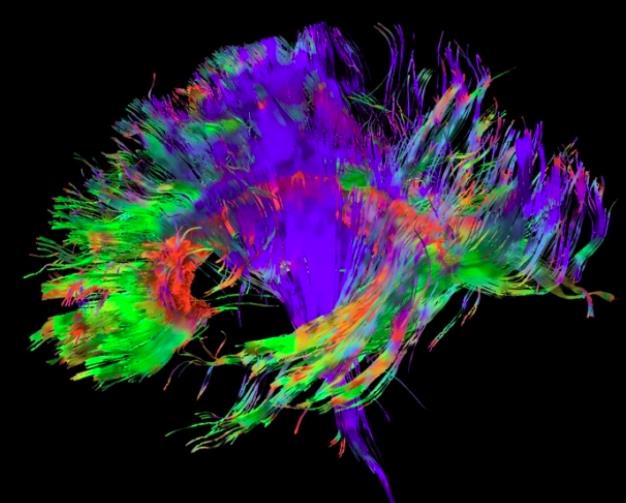PNAS:大脑衰老与基因相关
| 导读 |
日前,来自耶鲁大学医学院等机构的研究人员首次在研究样本中发现,正常大脑衰老后的功能下降与基因有关。研究人员表示,识别出与大脑衰老相关的基因,将有助于理解老龄化的生理过程。
... |

日前,来自耶鲁大学医学院等机构的研究人员首次在研究样本中发现,正常大脑衰老后的功能下降与基因有关。研究人员表示,识别出与大脑衰老相关的基因,将有助于理解老龄化的生理过程。
在这项刊登在了《PNAS》杂志上的研究中,科学家调查了包含 18 到 83 岁的 1129 个人参与者,科学家们记录了影响人们从青年期到老年期的神经认知能力变化以及大脑白质的变化。他们发现,大脑白质会积极影响大脑的学习能力和其他功能。利用生物亲缘间相似的遗传物质,能预测到随着年龄的增长,脑功能的变化。
研究人员记录了参与者的大脑结构和功能,这些参与者主要来自于圣安东尼奥大的墨西哥裔美国人家庭。由Peter Fox管理的圣安东尼奥成像研究所,得克萨斯大学健康科学中心,分析了参与者的大脑成像。
研究人员表示,大型家族谱系的的参与,给了研究年龄改变导致的基因变化提供了强有力的支持。科学家们通过精细分析科学解释了一个遗传现象,也即神经认知会随年龄的增大而变化,这种现象是会遗传的。同样地,白质完整性随年龄缩减也会受基因的影响。研究者还进一步解释了,不同基因负责这生物衰老的过程。
研究人员指出,这项研究的关键性优势在于:集中研究了一个以大家庭为单位的参与者,因此他们能区分开影响衰老过程的遗传因素和非遗传因素。(转化医学网360zhyx.com)
原文链接:
Genetic basis of neurocognitive decline and reduced white-matter integrity in normalhuman brain aging
Identification of genes associated with brain aging should markedly improve our understanding of the biological processes that govern normal age-related decline. However, challenges to identifying genes that facilitate successful brain aging are considerable, including a lack of established phenotypes and difficulties in modeling the effects of aging per se, rather than genes that influence the underlying trait. In a large cohort of randomly selected pedigrees (n = 1,129 subjects), we documented profound aging effects from young adulthood to old age (18–83 y) on neurocognitive ability and diffusion-based white-matter measures. Despite significant phenotypic correlation between white-matter integrity and tests of processing speed, working memory, declarative memory, and intelligence, no evidence for pleiotropy between these classes of phenotypes was observed. Applying an advanced quantitative gene-by-environment interaction analysis where age is treated as an environmental factor, we demonstrate a heritable basis for neurocognitive deterioration as a function of age. Furthermore, by decomposing gene-by-aging (G × A) interactions, we infer that different genes influence some neurocognitive traits as a unction of age, whereas other neurocognitive traits are influenced by the same genes, but to differential levels, from young adulthood to old age. In contrast, increasing white-matter incoherence with age appears to be nongenetic. These results clearly demonstrate that traits sensitive to the genetic influences on brain aging can be identified, a critical first step in delineating the biological mechanisms of successful aging.

来源:bio360
 腾讯登录
腾讯登录
还没有人评论,赶快抢个沙发